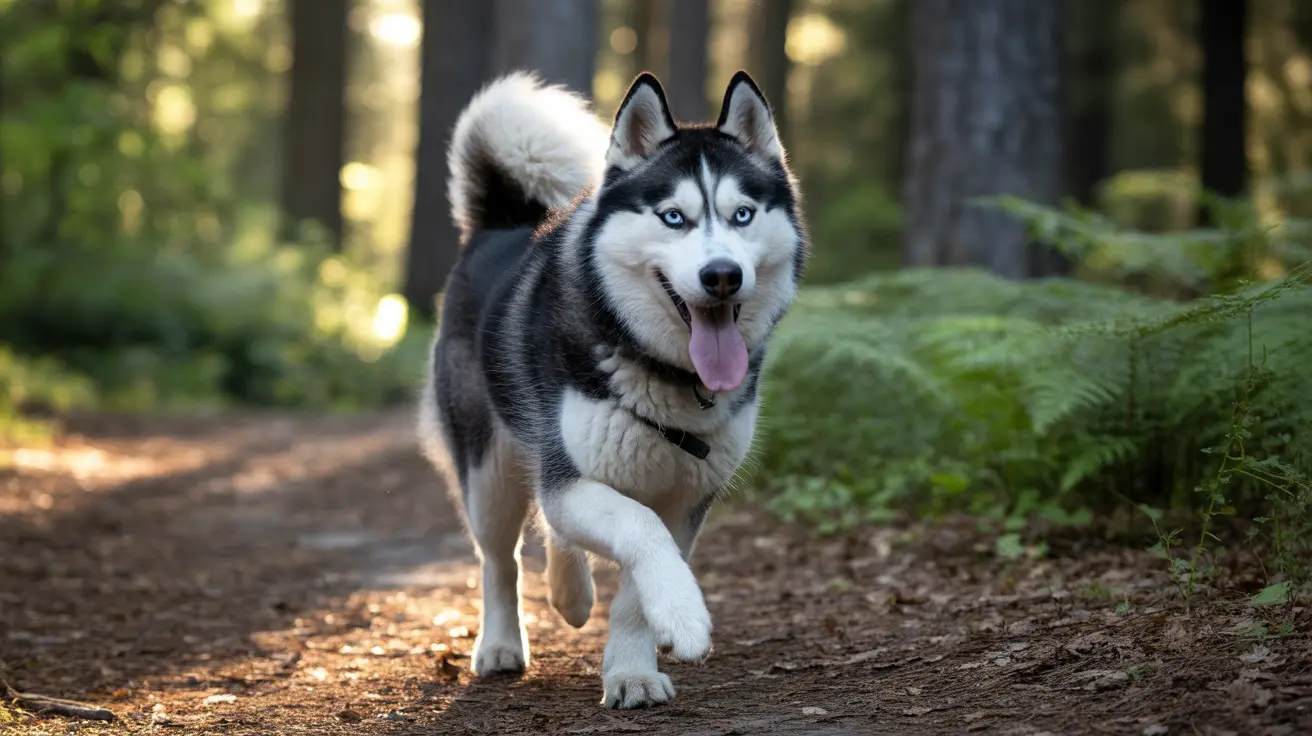Siberian Huskies are beloved for their striking wolf-like appearance, boundless energy, and loyal companionship. If you're considering bringing one of these magnificent dogs into your family, understanding their expected lifespan and how to maximize it is crucial. Let's explore everything you need to know about how long huskies live and what factors influence their longevity.
Understanding the Average Husky Lifespan
Siberian Huskies typically live between 12 to 15 years, with most reaching 12-14 years of age. This impressive lifespan is notably longer than many other medium to large-sized breeds, making them a long-term companion for dedicated owners. Their robust genetics, developed through centuries of breeding by the Chukchi people of northeastern Asia, contributes to their longevity.
Factors That Influence Your Husky's Life Expectancy
Genetics and Breeding
The genetic foundation of your Husky plays a crucial role in their lifespan. Responsible breeding practices, including genetic health screenings and careful partner selection, can significantly impact your dog's longevity. Working with reputable breeders who prioritize health testing can help avoid inherited conditions that might shorten your Husky's life.
Diet and Nutrition
Proper nutrition is fundamental to a long, healthy life. Huskies require a balanced diet appropriate for their age, activity level, and specific health needs. High-quality protein sources, essential fatty acids, and appropriate portions help maintain optimal weight and prevent obesity-related health issues.
Exercise and Mental Stimulation
Huskies are high-energy dogs that require substantial physical activity and mental engagement. Regular exercise not only maintains their physical health but also prevents destructive behaviors that can arise from boredom. Aim for at least 1-2 hours of vigorous activity daily, including running, hiking, or structured play sessions.
Common Health Challenges Affecting Husky Longevity
Physical Health Issues
- Hip dysplasia
- Eye problems (including cataracts and progressive retinal atrophy)
- Hypothyroidism
- Zinc deficiency
- Autoimmune disorders
Preventive Care Measures
Regular veterinary check-ups, vaccinations, and early detection screenings are essential for maintaining your Husky's health. Preventive care helps identify and address potential health issues before they become severe, potentially extending your dog's life.
Tips for Maximizing Your Husky's Lifespan
- Schedule regular veterinary check-ups
- Maintain a consistent exercise routine
- Feed a balanced, high-quality diet
- Keep up with preventive care
- Provide mental stimulation through training and enrichment activities
- Ensure proper grooming and dental care
- Create a safe living environment
Frequently Asked Questions
How long do Siberian Huskies typically live, and what is their average lifespan?
Siberian Huskies typically live 12-15 years, with most reaching 12-14 years. This lifespan is relatively long compared to other medium-sized dog breeds.
What health issues most commonly affect the lifespan of a Siberian Husky?
The most common health issues affecting Husky lifespan include hip dysplasia, eye problems, hypothyroidism, and autoimmune disorders. Regular veterinary screening can help detect these conditions early.
How can I help my Husky live a longer, healthier life through diet and exercise?
Provide a balanced, high-quality diet appropriate for your Husky's age and activity level, and ensure 1-2 hours of daily exercise. Regular mental stimulation and maintaining a healthy weight are also crucial.
What role does responsible breeding play in the lifespan and health of a Husky?
Responsible breeding significantly impacts Husky health and longevity. Choose breeders who conduct genetic health screenings and prioritize breeding for health and temperament over appearance.
How often should I take my Husky to the vet to monitor breed-specific health concerns?
Schedule veterinary check-ups at least annually for adult Huskies, with more frequent visits for puppies and seniors. Regular monitoring of eyes, joints, and thyroid function is particularly important for this breed.
With proper care, attention, and preventive health measures, your Siberian Husky can enjoy a long, healthy life as your devoted companion. Remember that each dog is unique, and working closely with your veterinarian to address individual health needs is key to maximizing your Husky's lifespan.






